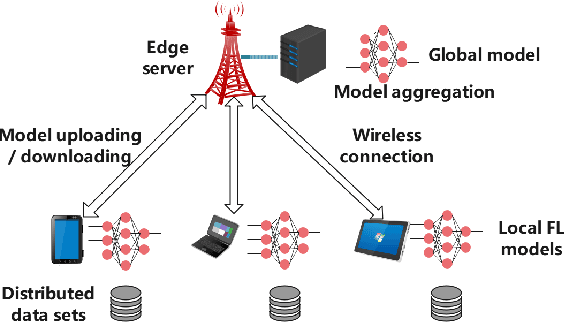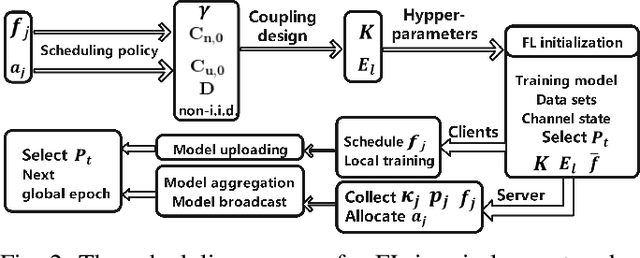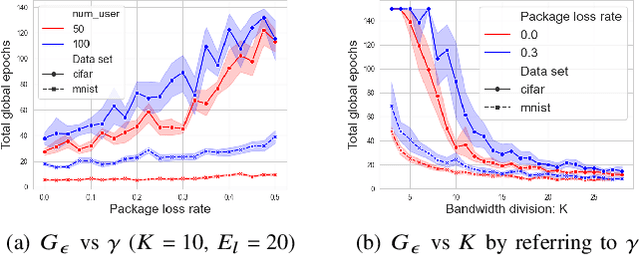Khaled B. letaief
Convergence Analysis and System Design for Federated Learning over Wireless Networks
Apr 30, 2021



Abstract:Federated learning (FL) has recently emerged as an important and promising learning scheme in IoT, enabling devices to jointly learn a model without sharing their raw data sets. However, as the training data in FL is not collected and stored centrally, FL training requires frequent model exchange, which is largely affected by the wireless communication network. Therein, limited bandwidth and random package loss restrict interactions in training. Meanwhile, the insufficient message synchronization among distributed clients could also affect FL convergence. In this paper, we analyze the convergence rate of FL training considering the joint impact of communication network and training settings. Further by considering the training costs in terms of time and power, the optimal scheduling problems for communication networks are formulated. The developed theoretical results can be used to assist the system parameter selections and explain the principle of how the wireless communication system could influence the distributed training process and network scheduling.
 Add to Chrome
Add to Chrome Add to Firefox
Add to Firefox Add to Edge
Add to Edge